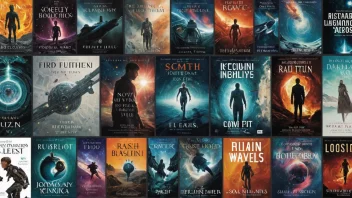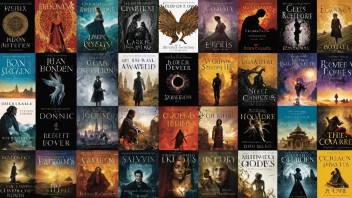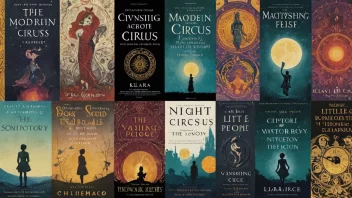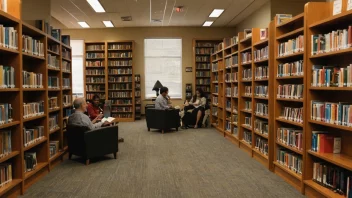Classic literature is not just a treasure trove of stories; it is a powerful tool for fostering critical thinking among readers. These works, written by some of the most esteemed authors in history, provide profound insights into human nature, societal norms, and philosophical questions that continue to resonate today. Engaging with classic texts allows readers to explore complex themes, analyze character motivations, and question moral dilemmas, all of which are essential components of critical thinking. This article delves into how classic literature can enhance our ability to think critically, providing practical strategies for readers and educators alike.
The Value of Classic Literature in Developing Critical Thinking
Classic literature encompasses a wide range of genres and styles, but what unites these works is their enduring relevance and the depth of their narratives. Texts like Shakespeare's plays, Jane Austen's novels, and the works of Dostoevsky challenge readers to reflect on their own beliefs and the world around them. By engaging with these texts, readers are prompted to consider various perspectives, leading to a richer understanding of complex issues. For instance, when reading George Orwell's "1984," one is compelled to think critically about themes of surveillance, freedom, and totalitarianism. This process of questioning and analyzing helps to cultivate a mindset that is not only inquisitive but also reflective.
Analyzing Character Motivations
One of the most effective ways to encourage critical thinking through classic literature is by analyzing character motivations. Characters in classic literature often face moral dilemmas or societal pressures that invite readers to consider the implications of their choices. For example, in Fyodor Dostoevsky's "Crime and Punishment," the protagonist Raskolnikov grapples with the justification of his crime and its psychological repercussions. Readers can engage in discussions about what drives Raskolnikov's actions and whether his rationale is ever justified. This kind of analysis not only deepens understanding but also encourages readers to examine their own values and the motivations behind their decisions.
Exploring Themes and Context
Classic literature is rich with themes that reflect the social, political, and historical contexts of the times in which they were written. By exploring these contexts, readers gain insights into how literature can comment on and critique societal norms. For instance, in Harper Lee's "To Kill a Mockingbird," themes of racial injustice and moral integrity are examined through the lens of the American South during the 1930s. Readers are encouraged to think critically about how these themes relate to contemporary issues of race and justice. By drawing parallels between the past and present, readers develop a more nuanced understanding of societal change and moral responsibility.
Encouraging Open Discussion
Creating an environment that fosters open discussion around classic literature is crucial for developing critical thinking skills. Book clubs, classroom settings, and informal reading groups provide opportunities for readers to share their interpretations and challenge one another's viewpoints. For instance, discussing the ending of a novel like "The Great Gatsby" by F. Scott Fitzgerald can lead to varied interpretations about the American Dream and its attainability. Encouraging readers to articulate their thoughts and listen to differing opinions helps to sharpen their analytical skills and promotes a culture of respectful debate.
Writing Reflectively
Another effective strategy for encouraging critical thinking is through reflective writing. After reading a classic text, readers can be prompted to write essays or journal entries that explore their thoughts on the material. This practice allows individuals to process their reactions and articulate their critiques, fostering deeper engagement with the text. For example, writing a reflective piece on the themes in Mary Shelley's "Frankenstein" can lead to discussions about ethics in science and the consequences of ambition. This exercise not only enhances comprehension but also strengthens writing skills, which are essential for effective communication.
Classic Literature and the Development of Empathy
In addition to critical thinking, classic literature also plays a significant role in developing empathy. By experiencing the lives of characters from diverse backgrounds and eras, readers can cultivate a greater understanding of the human experience. This is particularly relevant in works like Charles Dickens' "A Tale of Two Cities," which explores themes of sacrifice and redemption during the French Revolution. As readers navigate the challenges faced by the characters, they are encouraged to empathize with their struggles and triumphs, fostering a deeper connection to the broader human condition.
Conclusion
Classic literature serves as a vital resource for encouraging critical thinking and promoting empathy among readers. Through the analysis of character motivations, exploration of themes and contexts, open discussions, and reflective writing, readers can develop a richer understanding of themselves and the world around them. The timeless narratives and profound questions posed by classic texts invite us to engage deeply with the complexities of life, prompting us to think critically and empathetically. As we continue to explore these works, we not only foster a love of reading but also equip ourselves with the skills necessary to navigate the intricacies of modern life.






